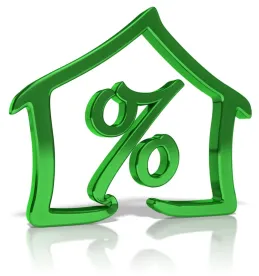Each year select municipalities appraise all properties within their borders in order to have all tax assessments reflect the current full and fair value of each property within the taxing district. The process, known as a revaluation, is alarming to property owners since they do not know whether their taxes will increase, decrease, or stay the same.
In 2017, revaluations were completed in Trenton, New Brunswick, Milburn, and many other municipalities in New Jersey. This article will address frequently asked questions that we have received over the years.
Are revaluations conducted so the municipality can collect more tax revenue?
The answer is no. The budgeting and tax assessment processes are related, but separate functions. Each municipality will pass a budget on an annual basis, whether or not a revaluation is done. Generally, the tax revenue will be used to pay for municipal services, fund local schools, and pay a portion of the County’s expenses. The budget is generally adopted sometime during the summer of each year. The tax assessor is not involved in the budgeting process.
However, the tax rate is determined by dividing the budget by the aggregate assessment of all towns. Assume that a municipality has a budget of $10 million and, prior to the revaluation, all properties in the town had an aggregate tax assessment of $250 million. The tax rate in the town would be $4.00 per $100 of assessed value. Further, assume that after the revaluation, the aggregate assessments increase to $500 million (average assessment doubles). If the budget does not change and remains at $10 million, the new tax rate will be $2.00 per $100 of assessed value ($10 million divided by $500 million). Under both scenarios, the township only gets $10 million of revenue.
However, in a perfect world, if the revaluation numbers are current and accurate, the tax burden should be spread fairly within the municipality. Of course, this assumes that allocating taxes based upon the fair value of real estate is a fair in the first place – a discussion for another day.
Why does a municipality perform a revaluation?
In New Jersey, it would be too costly to value property on an annual basis. In addition, most municipalities have part time tax assessors making it virtually impossible for the assessor to have sufficient time to value each and every property in a municipality. As a result, New Jersey has adopted a “ratio” system where each town has an average ratio of sale price to tax assessment. The ratio changes each year depending on market factors. For example, when property values are increasing, the ratios will drop.
However, when properties in a select municipality are not being assessed at the same rate of true value, or are being assessed substantially below true market value, a revaluation may be required. A municipality can decide to perform a revaluation by itself, or the local County Board of Taxation can order a municipality to complete a revaluation. In either case, the revaluation plan must be approved by the Director of the State Division of Taxation. The factors reviewed in determining whether a revaluation is necessary include:
-
Whether the last revaluation was more than 10 years ago,
-
Whether there have been significant zoning or neighborhood changes,
-
The accuracy of property record cards, and
-
Most important, whether there is a significant deviation of individual assessments/sale ratios from an overall average assessment sales ratio for the town.
For example, if a municipality has a ratio of 60%, and a statistical analysis over a two year time period shows that the average assessment to sale ratio over that time period is 80%, the deviation is significant and indicates the ratio is no longer accurate.
Will my taxes increase after the revaluation?
The answer is maybe. Generally, when a revaluation is completed, a portion of the municipality will experience an increase in taxes, a portion will remain the same, and a portion will have their taxes reduced. For example, if your property was over-assessed prior to the revaluation, there is a likelihood your taxes will decrease. However, if you have an older home in town and the assessment was too low, you may see an increase in your tax assessment.
Will I have an opportunity to meet with the revaluation company to discuss my assessment?
The answer is yes. Revaluation companies will send you a preliminary number before making the number final with the local county tax board. At that time, you have an opportunity to meet with the revaluation company.
What do I do if the revaluation company will not change the value?
File a timely tax appeal.
If I file a tax appeal challenging the revaluation company, who has the burden of proof?
Once a tax assessment is placed on a property, the tax assessment is presumed to be correct. The “presumption of correctness” places the burden on the party appealing the tax assessment to submit strong proofs to establish that the tax assessment is incorrect.
It is very important to note that you must come forward with very good proof. For residential properties, this requires you to find comparable sales, generally within the municipality and within the year preceding the tax assessment.



 />i
/>i
